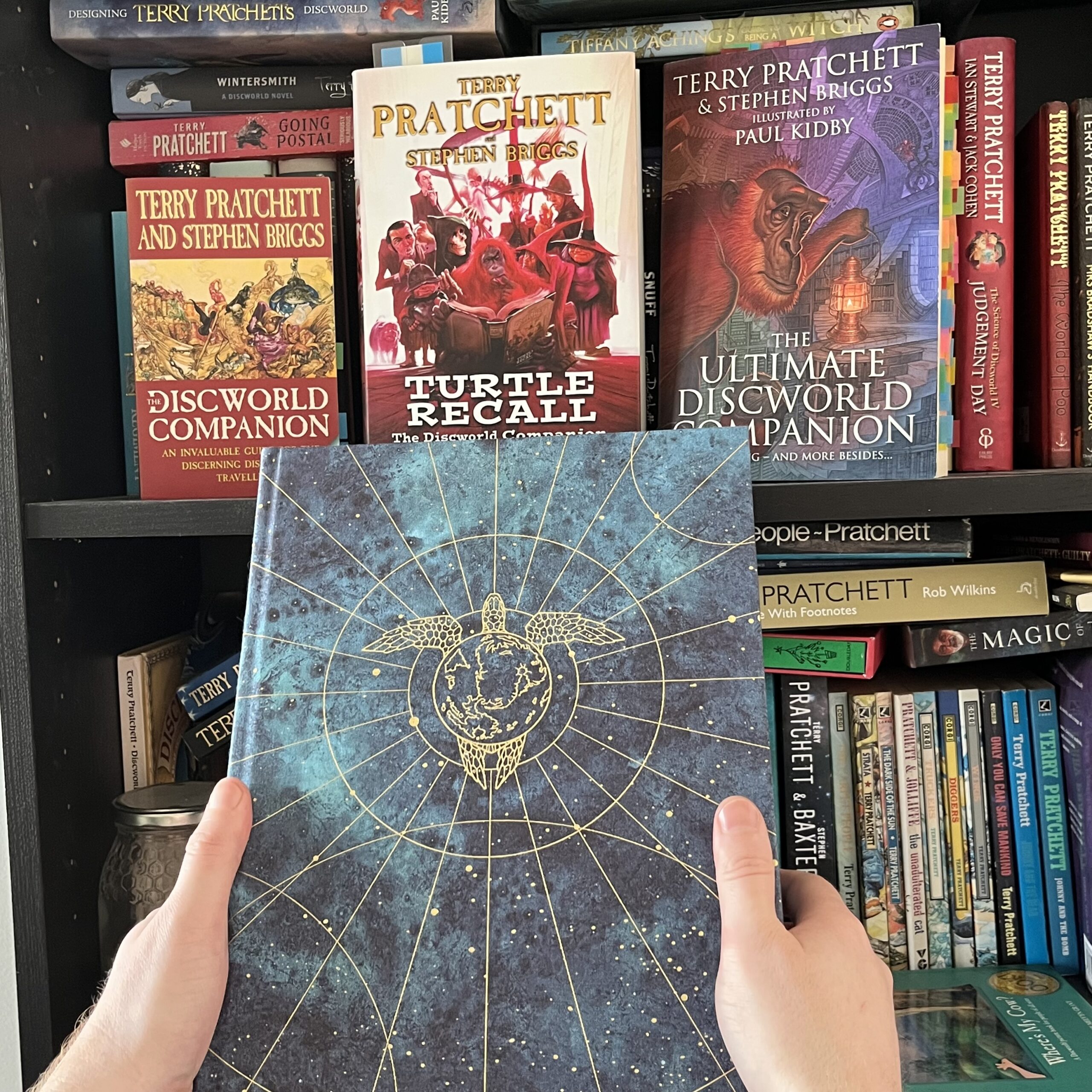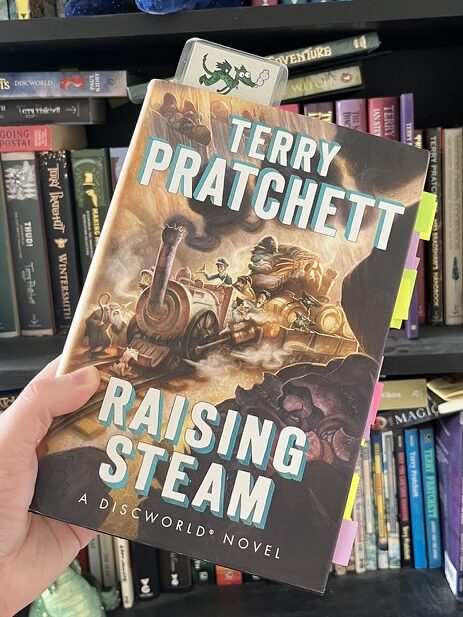#Pratchat91 Notes and Errata
These are the episode notes and errata for Pratchat episode 91, “We Can Reference It For You Wholesale”, discussing the various editions of Terry Pratchett and Stephen Briggs’ The Discworld Companion, but especially 2021’s The Ultimate Discworld Companion.
Iconographic Evidence

Stephen Briggs was kind enough to offer to answer any questions folks had, so we asked if he’d share an image of the original index cards. And he did! See the tweets below. He also mentioned that the cards are seen in the 2017 biographical documentary, Terry Pratchett: Back in Black.
Notes and Errata
- The episode title references both the Ankh-Morpork national anthem, “We Can Rule It For You Wholesale” (see #Pratchat53, “A (Very) Few Words by Hner Ner Hner”, for more on the anthem), and also Philip K Dick’s short story “We Can Remember It For You Wholesale” – adapted for the screen (twice!) as Total Recall. (See #Pratchat56, “do { Podcast(); } while (unreadPratchetts > 0);”, for more on Philip K Dick.)
- You can find the Annotated Pratchett File (affectionately known as the APF), the FAQ, the Pratchett Quote File and many more newsgroup-era fan resources at the L-Space Web.
- Like other newsgroups at the time, alt.tv.red-dwarf had not just one FAQ, but a whole set of documents covering different topics. You can find them scattered about the web, but none of them seem to have been updated after the year 2000, so they’re all very out of date.
- The Terry Pratchett and Discworld Wiki is also hosted by the L-Space web, and is often referred to as “the L-Space wiki” as shorthand (and to differentiate it from the Discworld wiki at Fandom.com). You can find it at wiki.lspace.org – and please join up and help improve it if you want! There are only a few active members at the moment (and a whole lot of spambots out there…)
- Wikipedia articles don’t all lead to “Psychology” – they lead to “Philosophy”! This phenomenon, known as “Getting to Philosophy”, is that successively clicking on the first wiki-link of a Wikipedia article leads most of the time to the article on Philosophy. This has been well-demonstrated by analysis of Wikipedia data, and Wikipedia itself has an article about it (though not in the main encyclopaedia space).
- Ben is correct about both things he thought were mentioned in the books:
- The Glingleglingleglingle Fairy appears to Ridcully in the bath near the end of Hogfather.
- The idea that Anoia might do stuck zips is, indeed, in Wintersmith; she mentions it when introducing herself to Tiffany in Chapter 7.
- Ben’s information about editions of the Companion is secondhand for those not pictured above, and some of it may not be correct. For instance, we’ve heard from listener Steve that the trade paperback edition of The New Discworld Companion is not updated to include The Wee Free Men. (It’s possible the regular paperback edition was, but we don’t know yet.) This goes to show the importance of checking primary sources where possible, which is why Ben has ordered the various editions! But here’s a quick list of the major revisions mentioned:
- The Discworld Companion, first published in 1994; at least two editions
- The Discworld Companion: Updated, first published in 1997; probably just one edition?
- The New Discworld Companion, first published in 2002; at least three editions
- Turtle Recall: The Discworld Companion…So Far, first published in 2012; just two editions
- The Ultimate Discworld Companion, first published in 2021; just one edition
- The Ultimate Discworld Companion: Expanded Edition (aka “The Dunmanifestin Edition”), first published in 2022
- The mystery is solved! The only male member of the Seamstresses Guild, Mr Harris of the Blue Cat Club, appears in just one place in the novels – the third-last footnote in Jingo. Mr Harris – likely a reference to the author of My Life and Loves, Frank Harris – is a member of the Guild’s committee. The club is also given a brief write-up in the “Nightlife and Clubland” section of The Compleat Ankh-Morpork. Thanks to Old Dickens of the afore-mentioned L-Space Wiki.
More notes coming soon!
Thanks for reading our notes! If we missed anything, or you have questions, please let us know.

